#cuz it might just be robert and joseph
Text
thinking about dream daddy and consent
#random thoughts#dream daddy#okay so like. in how many of the routes do you expicitly sleep with the daddy of your dreams???#cuz it might just be robert and joseph#and like. in both cases sex IS an integral part of their relationship to the pc#with robert the only way he can have a healthy relationship with the pc is without sex because his relationship with sex is so fucked up#with joseph his relationship with the player revolves around sex. you have to have sex with him at least once during his route#(im pretty sure on that it's been a hot minute since i've played his route. gonna try and not have sex with him after work)#anyway robert's whole character is based around consent and its violation#if you don't like whiskey he acknowledges it and gets you a shot anyway. if you don't like pineapple on your pizza he acknowledges it#but gets you a slice of hawaiian anyway#when he gets you guys bottles of wine from the liquor store and they turn out to be rosé he expects you to judge him for it#meanwhile joseph gets you out on a boat in the ocean with no contact to the outside world. sex with him is rougher than expected#if you have sex with robert he's rough enough to leave you feeling it the next day#seriously can you say no to joseph???
6 notes
·
View notes
Text
Btw I went into Dream Daddy only really liking the description of one or two of the dad's and coming out loving each and every one of them with my entire being
#honestly except Joseph#I might be biased cuz we can only get his bad ending#dream daddy#but also because#(((SPOILERS))) he cheats on his wife and likeeee in not about that life man#(((spoilers))) I know it's implied that Mary cheats too but it's not true. Robert and Neil say she never actually sleeps with the men#she just flirts relentlessly for free drinks
4 notes
·
View notes
Note
Hello! I was wondering if you could do a Dadsona who is a war veteran? And lives off of government money cuz of wounds and scars he got in the military (since in game Dadsona just kinda chills out in his most of the time) If writing all those dad's reacts is too hard Robert 'Bobert' Small would be ideal thank you!
I read my notes again and this one got a little bit more melancholy than my previous works and I have no idea what part of my brain saw your ask and decided that this was the time to for scar-worship.
Dads w/war veteran dadsona
Robert: At the beginning he didn’t give much thought on what you did for a living. But before your third date he started to worry he was keeping you up and disturbing you work, but time-wise it worked out pretty well for your first dates. If you’re not shy about showing off your scars . no matter how many times you tell him he doesn’t have to do that, he’d just be too busy tracing them with his hands to pay attention what you’re saying.He likes to remind you how brave you are while doing so. If you don’t believe him when he tells you this, then be prepared for him to just double his efforts and there is no stopping this man when he sets his mind on something. Mary often congratulates you after getting Robert to go to a formal event, even if she knows the driving force behind that was seeing you in uniform.
Damien: Is it even possible for this man to swoon more. Apparently yes it is.You could almost see the hearts in his eyes when you show him your scars. Like Robert he’d love tracing them with his fingers, but he leaves feather light kisses on them and telling you how he loves them, because they’re just extra proof of how strong you truly are and he won’t hear any objections. No matter how many times you tell him to stop the sweet talking, he won’t stop. He’ll only increase it and add some more mushy compliments for extra effectiveness.
Mat: He got worried the first time he noticed that you might not have a job. You kept hanging out at the coffee spoon almost as much as he did, and he owned it.When he asked you about it, you ended up talking about your history in the military for the duration of his breaks that day. He might not relate to a lot of things you tell him, but he’s a great listener and is always ready with a cup of tea when you’re feeling overwhelmed and want to talk. He’s a great calming presence in your life and if you suffer from nightmares he’ll play a gentle tune on his guitar for you to help you sleep. You might stress over it in the morning when he has to drink more coffee than usual, but to him it’s all worth it to see the serene smile on your face before you fall asleep.
Craig: It took him a hot minute to recognize you.He knew you were deployed after you two drifted apart, but the last time he had seen you, you were still young and dreamy eyed. Those same eyes were still there, but they looked so much more tired. The reality of it all slapped him right across the face the moment he realized that you were really in front of him. He was so busy taking you in that he only realized that the teenager next to you was Amanda. When he last saw her she was Rivers age and now she was big enough to wear Alex’ old jacket. Be prepared for a long chat, because he wants to now everything that’s happened since you last saw each other. He harbors some guilt over not being there for you when you needed a friend, but both of you agree that you should focus on the present and make up for lost time. To see his now scarred best friend holding his youngest daughter and making her laugh with funny faces never fails to melt his heart.
Joseph: He learns about your situation pretty quick after meeting you.It comes to light during your awkward first meeting, but it was dulled by the rest of the mess you called a conversation. He’s occupation has made him a great listener and can be very sympathetic. If you ever want a break from the stress that comes with being a veteran, he’ll take you out on the open water with his yacht. Just listen some Jimmy Buffet and forget about your worries and focus on the sunset. You are altogether beautiful my darling; there is no flaw in you. He likes to remind you of gods love and how you’ve done so well with your choices. Some of the church might not take it so well that he divorced his wife and is now dating a man, but he brings up the fact that they were just telling people that they should respect veterans and that manages to shut them up for a while.
Hugo: He knew about your situation through Amanda. She has done many school projects about your situation and they’ve all been very touching pieces. He’s read many books and seen many documentaries about war, but he can admit that he isn’t an expert on the matter. He does his best to apply his knowledge to help you with the problems that life causes. If you want to really impress him just show off some of the skills you learned from the army. If you managed to maintain the physical fitness from the force he’ll be thrilled to have someone to wrestle with. He also loves it when you pin him so effortlessly. He’ll lay down with you for hours and wax poetic about your scars if you let him, but usually either you or him end up falling asleep in your embrace. If you want to just sit next to him while he reads his current book out loud to you, he’d be very compliant.
Brian: Likes to remind you that you don’t always have to be the strong guy by lifting you into a bridal carry. He himself isn’t very good with his words, but you can tell his always genuine with his support. If you ever have an attack or feel too stressed out he’ll scoop you into a bear hug and kiss the top of your head. He’ll whisper comforting words and won’t let go until you’re feeling better. If you’re not standing up, you can be sure Maxwell is going to be joining this cuddle party. If you’re ever feeling insecure about your scars, he’ll show you his stretch scars. He knows it’s not exactly the same thing, but it’s his way of telling you he would never judge your scars.
#dream daddy#dream daddy imagine#dream daddy scenarios#dream daddy headcanon#robert small#damien bloodmarch#mat sella#craig cahn#joseph christiansen#hugo vega#brian harding#ddadds#ddadds imagine
232 notes
·
View notes
Text
Best of 2019 a.k.a. A New Way of Listening to Music
Hello, everyone. Here are some thoughts on the music I listened to in 2019. My listening trends in 2019 stayed pretty much the same as they did in 2018- Most of the albums I loved were written and performed by women... Most of the albums I loved fell somewhere on the wide spectrum of guitar-based music, with a little bit of electronic stuff here and there. What changed was the way I listened to music. Whereas in the past I listened to whatever came my way, whenever it came my way, in 2019 I tried to focus on one or two albums a week. From late-January through the end of November, I highlighted one album every week on my Instagram page. There were only a couple of weeks I missed or that I highlighted an old album instead of a new one. I found myself listening to full albums on repeat and really getting into every song. The result is an end-of-year list that is free from my perception of outside expectations. All of my past lists have been made with this voice in my head that wants to move albums up or down on the list based on whether it was well-reviewed or not, or whether or not my friends and family (especially those whose opinions on music I revere) might judge me for liking a record too much, or, more likely, not liking a record enough. The 2019 list is free of those anxiety-driven choices, and as a result, it was one of my favourite lists I've ever put together. If you listen to a song that I've highlighted here, I encourage you to buy or stream the album (but especially buy it) and take in the whole thing. -Jenksy As always, I'm kicking off the list with my Most Disappointing Album of the Year. It's the only album on the list I write anything about- not because it deserves to be roasted, but because you don't really have to justify liking a piece of art, but you should always be able to talk about why you dislike it. Following that are my favourite EPs of the year, then the Top 50. The Most Disappointing Album of 2019

Weezer - Weezer (Black Album) I feel like I've given Weezer a lot more leeway than most have done in the last 10-15 years. While they've put out some good records and some bad records in that span, I've always tried to accept the music as Weezer being Weezer. Just because they've put out some critically adored albums doesn't mean they can't have fun. Their pop-rock vibes don't bother me, and I don't try to compare everything they do to Pinkerton or the Blue Album. I'm saying all this so you know that I like this band, and have done for most of my life, and I think they will make a good album again. However, the Black Album is not a good album. I can't even hesitate in calling it terrible. It lacks emotion and is too crisp and clean. It's driven by words that don't mean anything and music that wants to be catchy instead of interesting. Hopefully they bounce back, but the Black Album is easily the lowest they've fallen, musically. EPs
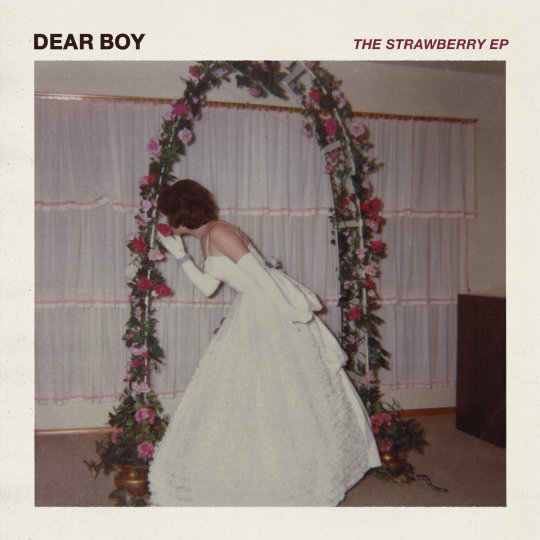
Dear Boy - The Strawberry EP "Limelight"

Death Cab for Cutie - The Blue EP "To The Ground"

dodie - Human "Monster"
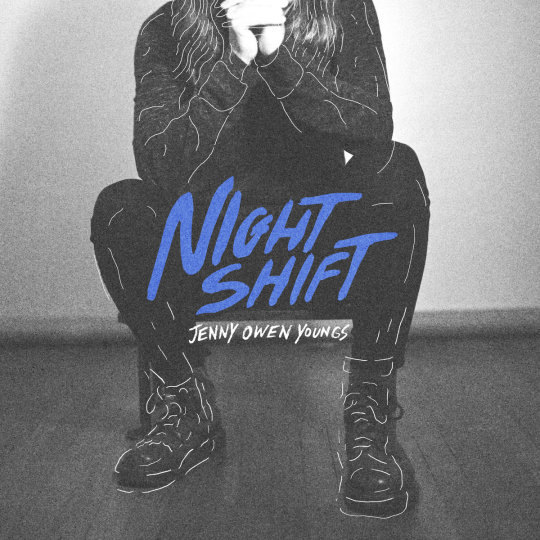
Jenny Owen Youngs - Night Shift "Dreaming on the Bus"

Lauran Hibberd - Everything is Dogs "Sugardaddy"

Liily - I Can Fool Anybody In This Town "Sepulveda Basin"

Middle Kids - New Songs for Old Problems "Call Me Snowflake"

Minke - The Tearoom "Too Late" Top 50

50. Idlewild - Interview Music "Same Things Twice"

49. Honeyblood - In Plain Sight "Glimmer"

48. Billie Eilish - WHEN WE ALL FALL ASLEEP, WHERE DO WE GO? "when the party's over"

47. Robert Ellis - Texas Piano Man "Nobody Smokes Anymore"

46. Hatchie - Keepsake "Without A Blush"
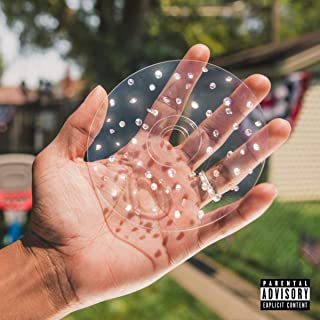
45. Chance the Rapper - The Big Day "Big Fish"

44. Frankie Cosmos - Close it Quietly "Rings (On A Tree)"

43. Field Mouse - Meaning "Heart of Gold"

42. The Mountain Goats - In League With Dragons "An Antidote for Strychnine"
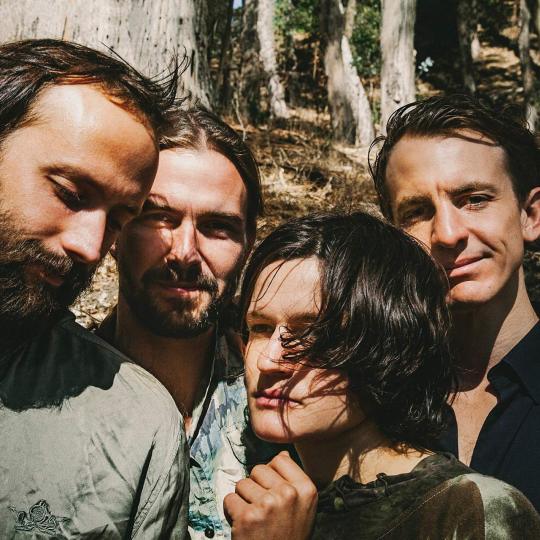
41. Big Thief - Two Hands "Forgotten Eyes"

40. The Hold Steady - Thrashing Thru The Passion "Traditional Village"

39. Feeder - Tallulah "Windmill"

38. White Lies - Five "Tokyo"

37. Brittany Howard - Jaime "Stay High"
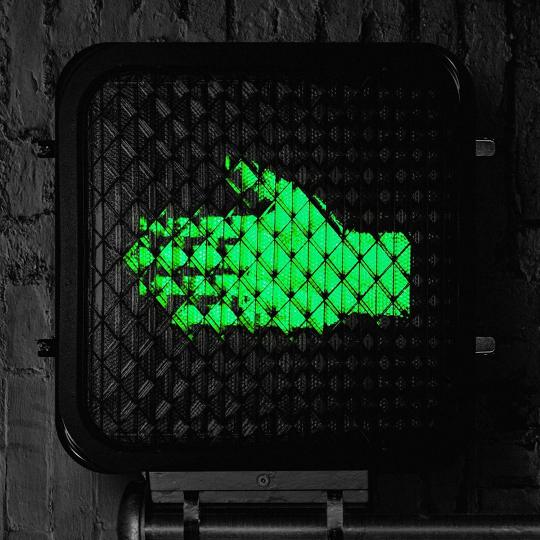
36. The Raconteurs - Help Us Stranger "Now That You're Gone"

35. Stella Donnelly - Beware of the Dogs "Old Man"
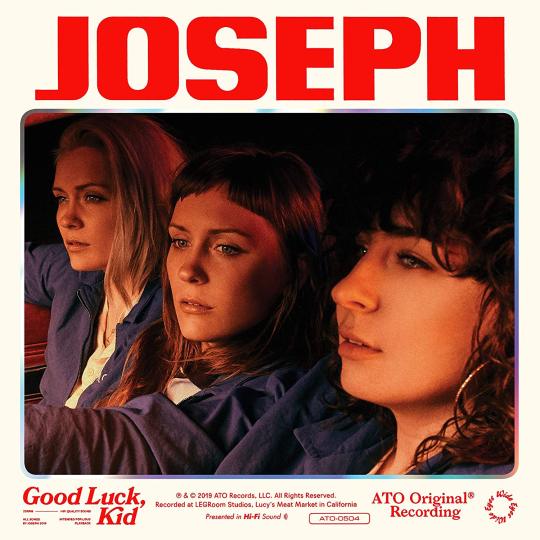
34. Joseph - Good Luck, Kid "Without You"

33. Faye Webster - Atlanta Millionaires Club "Right Side of My Neck"
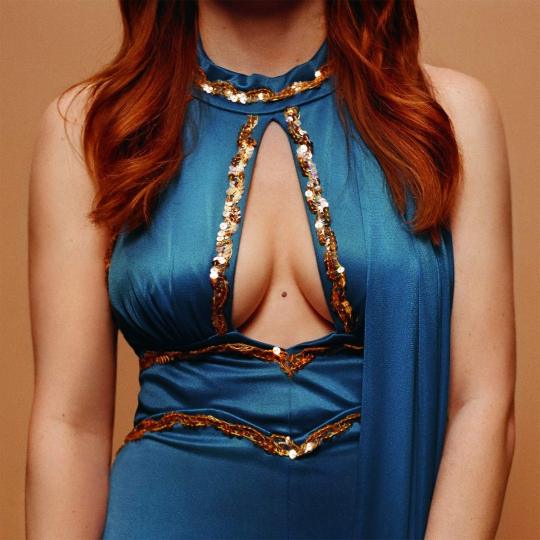
32. Jenny Lewis - On the Line "Red Bull & Hennessy"

31. MUNA - Saves the World "Who"

30. Fontaines D.C. - Dogrel "Chequeless Reckless"
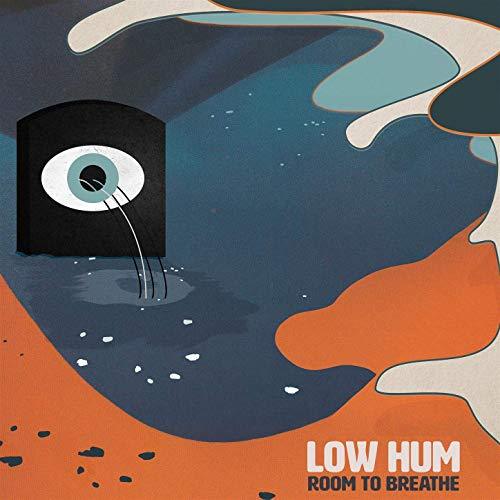
29. Low Hum - Room to Breathe "Room to Breathe"

28. Jade Bird - Jade Bird "Love Has All Been Done Before"

27. Sleater-Kinney - The Center Won't Hold "The Future Is Here"

26. Catfish & The Bottlemen - The Balance "Sidetrack"
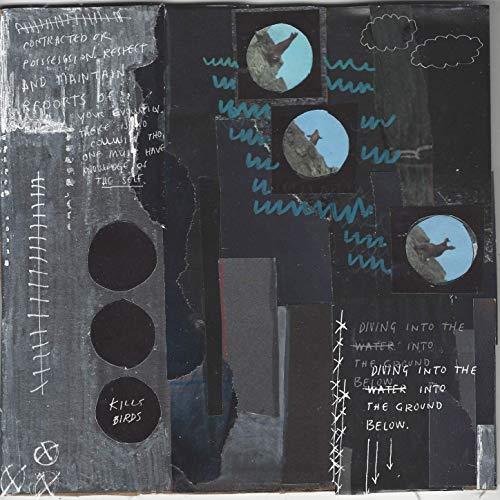
25. Kills Birds - Kills Birds "Only Yellow"
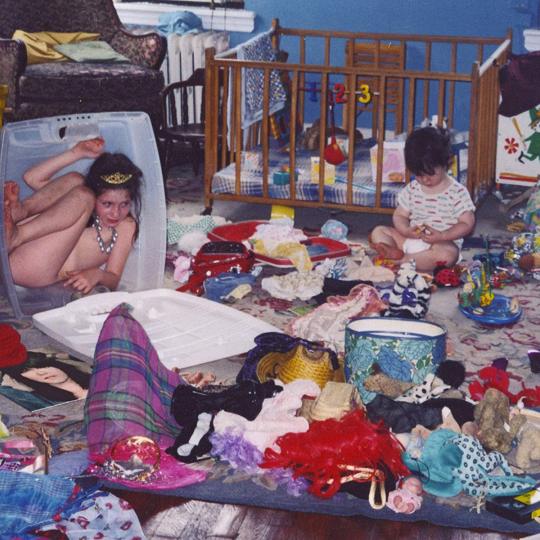
24. Sharon Van Etten - Remind Me Tomorrow "Malibu"

23. Lizzo - Cuz I Love You "Crybaby"

22. Karen O & Danger Mouse - Lux Prima "Redeemer"

21. The Regrettes - How Do You Love? "Fog"
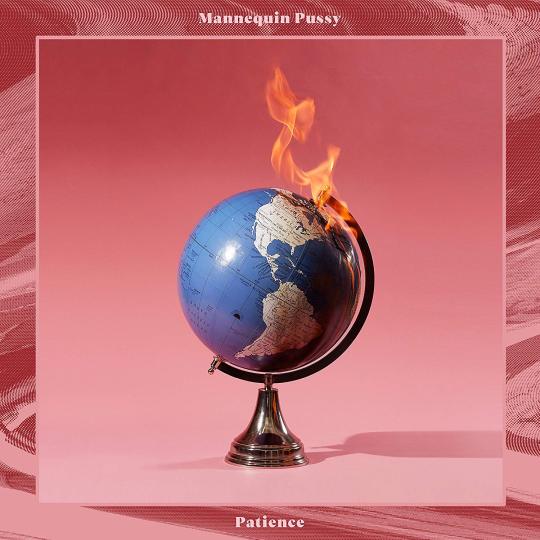
20. Mannequin Pussy - Patience "Drunk II" "Who You Are"

19. Elbow - Giants of All Sizes "White Noise White Heat" "Empires"

18. Angel Olsen - All Mirrors "Spring" "Chance"

17. Caroline Polachek - Pang "Caroline Shut Up" "Hit Me Where It Hurts"

16. Ex Hex - It's Real "Another Dimension" "Rainbow Shiner"

15. Noël Wells - It's So Nice! "Brighter Day" "Played for Keeps"

14. Molly Tuttle - When You're Ready "Clue" "Million Miles"

13. Potty Mouth - SNAFU "Bottom Feeder" "Liar"

12. Big Thief - UFOF "Century" "Cattails"

11. The National - I Am Easy to Find "Quiet Light" "Light Years"

10. Jimmy Eat World - Surviving "Delivery" "One Mil" "All the Way (Stay)"

9. Alex Lahey - The Best of Luck Club "Don't Be so Hard on Yourself" "Misery Guts" "Black RMs"

8. Blood Red Shoes - Get Tragic "Anxiety" "Mexican Dress" "Elijah"

7. Better Oblivion Community Center - Better Oblivion Community Center "Forest Lawn" "Sleepwalkin'" "My City"

6. The Japanese House - Good at Falling "We Talk All the Time" "f a r a w a y" "Lilo"

5. Sorcha Richardson - First Class Bravery "Oh Oscillator" "High in the Garden" "Driveway"

4. Black Pumas - Black Pumas "OCT 33" "Old Man" "Fire"

3. Amyl and The Sniffers - Amyl and The Sniffers "Gacked On Anger" "GFY" "Got You"

2. Julia Jacklin - Crushing "Don't Know How to Keep Loving You" "Head Alone" "Good Guy"

1. Oliver Spalding - Novemberism "Unreal" "Bow Creek" "Her Crescent"
4 notes
·
View notes
Text
Matthew Weiner, The Art of Screenwriting No. 4
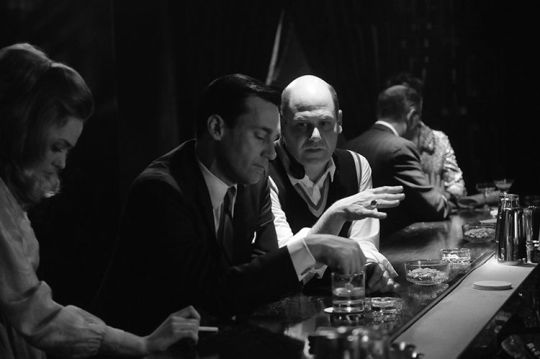
Born in 1965, Matthew Weiner is barely old enough to remember the period with which his television series Mad Men has now become almost synonymous. His office is exactly what one might hope for the creator of Don Draper: a stylish mixture of midcentury modern furniture, with a cabinet full of top-shelf liquor. But it turns out that the furniture came with the building, which was designed in 1955, and the liquor, mostly gifts, is wasted on Weiner, who hardly drinks at all.
(Copy and pasted cuz TPR charges and I got your back, man. Or maybe you’re made of money and can afford that kind of thing. It’s long in case ya wanna save it. Good Sunday night reading.)
Weiner’s sensibility reveals itself on closer inspection. A framed still from the set is shot from behind the actors’ heads, showing the crew. There’s a black-and-white photograph of Groucho Marx, Alice Cooper, and Marvin Hamlisch in conversation. There’s a homemade Father’s Day card by one of Weiner’s four sons, reading “Dad Men” in red and black crayon. There’s a picture of Stedman (Oprah’s boyfriend), because when Vanity Fair photographed Weiner’s desk soon after Oprah’s, he asked what she’d had on hers. His bookshelf overflows with fiction, essays, and poetry—from Diaries of Old Manhattan to Billy Collins to Moby-Dick.
A former Jeopardy! champion who once, rather than give notes, jumped up and danced to “Zou Bisou Bisou” for Jessica PareÌ (Megan Draper on the show), Weiner seems never to sleep. Our interview took place in four sessions that spanned almost eighteen months—real months, that is. More time than that passed on the show during the same period, but to say exactly how much would be, in Weiner’s universe, a spoiler. We spoke late into the night after he had spent full days in preproduction meetings, in editing, in sound-mixing sessions, on set, and in the writers’ room—and we could only sit down to talk on the rare nights when he didn’t have to write. Even with this schedule, he comes in every morning inspired by a movie he’s seen, an article he’s read, or a poem he’s remembered. (I’m lucky to be a writer on the show.) Weiner begins every season by rereading John Cheever’s preface to his Collected Stories: “A writer can be seen clumsily learning to walk, to tie his necktie, to make love, and to eat his peas off a fork. He appears much alone and determined to instruct himself.” The life of a showrunner leaves him almost no time to be alone, but Weiner seems always to be instructing himself.
WEINER
You know, I got a subscription to The Paris Review when I was fourteen or fifteen years old. I read those interviews all the time. They were really helpful.
INTERVIEWER
How did they help you?
WEINER
There were people talking about writing like it was a job, first of all. And then saying “I don’t know” a lot. It’s helpful, when you’re a kid, to hear someone saying “I don’t know.” Also, they were asking questions that I would’ve asked, only I’d have been embarrassed to ask them. Like, What time of day do you write?
INTERVIEWER
What time of day do you write?
WEINER
I write at night on this job because I have to, except Sundays when I write all day and all night. Left to my own devices I will always end up writing late at night, because I’m a procrastinator. But if there’s a deadline, I will write round the clock.
INTERVIEWER
Did you know when you were a kid that writing was the job you wanted?
WEINER
I wanted to be a writer, but the way my family thought of writers, that would have been like saying, I want to be quarterback of the football team or president of the United States. My parents had the books every Jewish family had—My Name Is Asher Lev, QB VII, O Jerusalem!—but they were also really into Joseph Heller, and my dad took Swann’s Way on every vacation. I always thought I would be a novelist, like the people whose books I saw lying around the house.
INTERVIEWER
Did you read those books?
WEINER
Not really. I read very slowly. I’m a good listener. If they’d had books on tape back then, I would be the best-read person in the world. When I had to do a report on Measure for Measure, I went and got the records, and I listened to John Gielgud do it. My dad read Mark Twain to us at night. I loved “The Stolen White Elephant” and “The Celebrated Jumping Frog of Calaveras County.” And The Prince and the Pauper, oh my God, did I love that. I read Mad magazine and stuff, but my parents were always yelling at me, You need to read more! Crack a book already! I was not really a reader until I left college. My favorite form of writing is still the short story. Winesburg, Ohio was the first book that I read where I recognized the people in it. I knew the teacher who was sort of gay and couldn’t control his hands. I recognized everybody in there. And then, with John Cheever, I recognized myself in the voice of the narrator. His voice sounds like the voice in my head—or what I wish it sounded like.
INTERVIEWER
Who are your favorite writers?
WEINER
I don’t make lists or rank writers. I can only say which ones are relevant to me. Salinger holds my attention, Yates holds my attention. John O’Hara doesn’t, I don’t know why—it’s the same environment, but he doesn’t. Cheever holds my attention more than any other writer. He is in every aspect of Mad Men, starting with the fact that Don lives in Ossining on Bullet Park Road—the children are ignored, people have talents they can’t capitalize on, everyone is selfish to some degree or in some kind of delusion. I have to say, Cheever’s stories work like TV episodes, where you don’t get to repeat information about the characters. He grabs you from the beginning.
Poems have always held my attention, but they’re denser and smaller. It’s funny because poetry is considered harder to read. It wasn’t harder for me. Close reading, that is. Milton, Chaucer, Dante—I could handle those for some reason, but not fiction. From ninth grade on, I wrote poetry compulsively, and pushed myself to do iambic pentameter and rhymes because free verse was cheating—anybody could do that. But I was such a terrible student. I couldn’t sustain anything.
INTERVIEWER
What pointed you toward drama?
WEINER
Actually, I think it has something to do with my not being a great reader. When a play’s put up, it’s all there in front of you. When you’re a little kid who has trouble with long books, it’s a very literary experience to go see Eugene O’Neill. During high school, I wrote skits, I did improv, I was a performer. My senior year in high school I was elected by my class to give a speech at graduation. It was seven or eight minutes of stand-up comedy, including a salute to the bottom fifth of the class, of which I was part. The dad of a classmate of mine, a guy named Allan Burns, who created The Mary Tyler Moore Show, came up to me afterward. He said, Have you ever thought about writing for TV? You could do that.
INTERVIEWER
Had you thought about it?
WEINER
I had been raised more or less without TV. I loved it, my parents loved it—but we weren’t allowed to watch it. And yet what was on TV during those years? M*A*S*H, The Mary Tyler Moore Show, Carol Burnett and Bob Newhart. TV was very bad before that, and got very bad after that, but at the time it was really very good. The thing is, I took what Allan Burns said seriously just because it was the first time someone said I might be able to do anything. But my parents hated show business. It’s part of living in Los Angeles.
There was one other formative experience. One of our English teachers, Ms. Moser, had a poet come to visit our school—W.S. Merwin. The honor society got to have dinner with him. Even though I made bad grades, I edited the literary magazine, and the teacher made sure I was allowed to go, too. She had even told him about me, because when we met he said, Tell me your name again, I want to remember it. In my yearbook, Ms. Moser wrote to me, Keep doing what you’re doing, and stick to poetry and starve.
INTERVIEWER
Which you did not do.
WEINER
I tried. At Wesleyan I could not get into any writing classes. I applied to everything and got rejected. You’re laughing now, you should have heard my parents. Six hundred students, all that money, and you can’t get into class!? An older student, who was studying with the famous professor Frank Reeve, told me I should go and ask, personally, to take a tutorial with him. Franklin D’Olier Reeve. This Vermont Yankee, log-splitting son of a bitch. He had gone with Robert Frost to Russia. Incredibly handsome and charismatic—in fact, he was Christopher Reeve’s father. I imagined he was in the CIA. So I went to his office and brought my poems with me. He shredded them. I had some line that was like, “Where does it hide?”—this is sophomore poetry, right?—“Where does it hide to gently squeeze the pitch of morning into orange whispers of dusk, squeeze the pitch of dusk into orange whispers of morning,” and he said, Lose the split infinitive and juice squeezer. It was brutal. Then he said, When do we start?
I spent three semesters studying with Professor Reeve, writing poems and delivering one or two of them to him every week. I also took a lot of poetry classes. There were a couple years there where The Waste Land was the most interesting thing in the world to me. I loved that it was so personal and grimy and gross and epic at the same time. Two women talking about getting an abortion in a bar at closing time right next to a story about Greek gods and the Fisher King. The high and the low together. It is so important to my life as a writer, there’s so much dialogue, so much rhythm that I have tried to emulate. That’s still my idea of what a poetic sentence sounds like. My senior thesis was in creative writing, was poetry.
INTERVIEWER
What were your poems like?
WEINER
Pretty funny, a lot of them, in an ironic way. And very confessional. A lot like what I do on Mad Men, actually—I don’t think people always realize the show is super personal, even though it’s set in the past. It was as if the admission of uncomfortable thoughts had already become my business on some level. I love awkwardness. Reeve compared my poems to cartoons. He had me read “Mac Flecknoe,” Dryden’s satire on the poet Thomas Shadwell, because he knew I had a sense of humor and was interested in celebrities. He also told me that I had to be as interesting as my work, which terrified me. I was like, Forget it, dude. I’m a very conventional person. I’m middle-class. My father’s a physician. I had no personality to speak of. I kept wishing I had grown up interesting so I could be a great writer.
INTERVIEWER
Maybe Reeve turned you into a TV writer by giving you a weekly deadline.
WEINER
I’ve always said TV writing is for people who hate being alone more than they hate writing. Even then I needed to talk about what I was doing. Once I knew that my writing would be read right away, even if it was judged—and once I knew that it would be shot right away—that was all I cared about.
INTERVIEWER
Did you figure this out in film school?
WEINER
No. I didn’t go to film school for writing, but I realized that if you could write, you could have complete control. All these people I admired—Woody Allen, Jim Brooks, Preston Sturges—directed and wrote. When directors would come to the school and talk about their movies, eventually they’d have to talk about the fact that someone else had written it. To me that was like the dirty secret.
Then I graduated from film school and was stuck in a hole by myself for three years, writing. Linda, my wife, was supporting us, but that was awful. I was not made for that. I am not the writer who wants to live in the woods. Plus, half my time was spent trying to get into show business, which is demoralizing and somehow futile without finished work, but easier than writing.
INTERVIEWER
What were you writing during that time?
WEINER
Screenplays. I finished a screenplay that I’d started at USC. Then I wrote another screenplay about paparazzi. Then I started working on a Big Movie. After film school, I read everything that had been assigned to me in college. I mean, everything. I read Mein Kampf. I read all the time instead of writing. And I read a lot of biographies and became interested in this kind of American picaresque character. By picaresque I don’t mean like Candide. I don’t mean a guy who shit’s happening to. I mean a guy who is making his own future because he has no other options. I mean Tom Jones. So I was writing this movie following a guy’s life from 1930 to the millennium. And I got to page 80 of the thing, and I abandoned it.
Then I decided I was going to make a movie, an improvised movie that I was going to be in. Kind of a comedy Cassavetes movie—people improvising, but in a story. This was around the time of Clerks. I saw Clerks and felt the way many people did. It wasn’t like hearing the Beatles for the first time. It was a ten-thousand-dollar amateur black-and-white movie. It was inspiring in the way only something crude and peculiar can be inspiring.
And because I had gone to film school, I knew what commercial filmmaking was and knew I didn’t like it. In the nineties there was a stranglehold of formula on the movies. People would point to great movies like Chinatown as examples of how structure generates great works. But I always felt that these structures were derived from great works. The individual stories are organic, they come out of people’s heads. To say that the story of Jesus and the story of Moses are the same story is a horrible mistake. Are they both heroic? Yes. Do they both have inauspicious beginnings and unmarked graves? Yes. That does not make them the same story. But the studios were trying to consolidate films into a bulletproof system, they were trying to reverse engineer a hit—which, of course, is insane. In entertainment you’re a fool to try that.
One of the big things was, everybody hated “episodic structure,” as they used to call it.
INTERVIEWER
Meaning what?
WEINER
They were uncomfortable with a movie like The Godfather or a story like the Odyssey, where the only thing holding the events together is the characters. Now, there’s this monster, this obstacle, but there’s no real progression—the hero just keeps trying to get home. Sure, Michael Corleone starts off as a young war hero and ends up as the godfather, but the wedding takes up the first half hour of the movie. People liked to talk about “act breaks” and “rising action” leading to a climax, but what about Apocalypse Now? Someone’s on a journey, and sure, we’re heading toward a climax, but there are so many digressions. To me, those digressions are the story.
People would say to me, What’s holding this together? Or, How is this moment related to the opening scene, or the problem you set up on page 15? I don’t know. That’s where the character went. That’s the story. So many movies in the seventies are told this way, episodically, and they feel more like real life because you don’t see the story clicking. Movies like Days of Heaven—big movies that take time out to show the locusts. Do you need the crop duster in North by Northwest? No, but it is the most memorable part of the movie. It has no essential function in the story. Cary Grant has already been pursued. They’ve already tried to kill him. They’ve drugged him. They’ve poured booze down his throat. Remember how Cary Grant goes back to the house where the bad guys got him at the beginning of the movie and poured booze down his throat? He comes back the next day and says, This is where I was, they poured booze down my throat. Remember how he goes into the room where they poured the booze into him and they’ve changed the couch?
INTERVIEWER
Even now the hair on my neck is standing up.
WEINER
They’re so evil. They changed the couch! It’s preposterous, but delightful. Of course, anything that is epic is episodic in structure, whether it’s Lawrence of Arabia or The Godfather, which was already being treated like an art movie—the most successful commercial movie in the world treated like an art-house movie.
I liked episodic structure and I thought it worked. I still think it works. At the time I was especially interested in Billy Wilder and Fellini. I liked their grasp of tone, the way the movies are both funny and dark. You’re always scared and laughing and on the verge of tears somewhere in the middle of these movies. I could watch Sunset Boulevard and 8 1⁄2 over and over again. Everything you need to know about writing is in those two movies. How to tell a story, where to start the story, whose point of view it’s from, at what point you leave their point of view, when you should see a character in a scene by himself or herself—all this shit that drives you nuts when you’re trying to structure something. And then, the fact that there are no rules. That’s what both movies are saying—there are no rules, the audience is not as rigid as you think, and certainly not as rigid as the people paying for the movies to get made.
Anyway, once I got out of film school I said, They will not let me fly the plane. So I’m going to build my own airport. I shot my first movie, What Do You Do All Day?, in twelve days, in 1995. It cost twelve thousand dollars. Anybody can raise twelve thousand dollars—now it would probably be even cheaper, because there was no digital then.
Around that time, my friend Daisy von Scherler Mayer called me up and said, I sold this sitcom. Come in and sit at the table. We’re going to run through the script and you’ll just pitch jokes. The show was called Party Girl. And I drove onto the Warner Brothers lot and sat down at the table with all these professional writers and had no trouble talking and telling jokes. Not just because I’m an extrovert, but because I’d just made this movie and I knew it was funny. You’ve never heard of What Do You Do All Day? and it never went anywhere, but I still say it changed my life. Making that movie took me from being a frustrated, bitter person with no control over his life to a delusional, grandiose person with no control over his life. I was so high on the idea of having a job and writing jokes and going down to the stage and seeing the actors saying them and getting laughs. I couldn’t believe it.
INTERVIEWER
So none of the screenplays you’d been writing before that period were made?
WEINER
Well, remember the eighty-page picaresque thing I threw away? That turned out to be the basis for Mad Men.
INTERVIEWER
Really?
WEINER
Four years after I’d started working in TV, I wrote the pilot for Mad Men. Three years after that, AMC wanted to make it. They asked me, What’s the next episode about? So I went looking through my notes. Now, imagine this. At this point it’s 2004—I’m writing for The Sopranos—and I go back to look at my notes from 1999 ... but then I find this unfinished screenplay from 1995, and on the last page it says “Ossining, 1960.” Five years after I’d abandoned that other screenplay, I’d started writing it again without even knowing it. Don Draper was the adult version of the hero in the movie. And there were all of these things in the movie that became part of the show—Don’s past, his rural poverty, the story I was telling about the United States, about who these people were. And when I say “these people,” I mean people like Lee Iacocca and Sam Walton, even Bill Clinton to some degree. I realized that these people who ran the country were all from these very dark backgrounds, which they had hidden, and that the self-transforming American hero, the Jay Gatsby or the talented Mr. Ripley, still existed. I once worked at a job where there was a guy who said he went to Harvard. Someone finally said, You did not go to Harvard—that guy didn’t go to Harvard! And everyone was like, Who cares? That went into the show.
How could it not matter, when everyone was fighting so hard to get into Harvard and it was supposed to change your life? And you could just lie about it? Guess what—in America, we say, Good for him! Good for him, for figuring it out.
INTERVIEWER
I’m struck by the irony that Don Draper has become an icon of the 1960s Establishment when the character himself feels like such an outsider.
WEINER
Everyone loves the Horatio Alger version of life. What they don’t realize is that these transformations begin in shame, because poverty feels shameful. It shouldn’t, but everyone who’s experienced it confirms this. Sometimes people say, I didn’t know we were poor—Don Draper knows he’s poor, very much in the model of Iacocca or Walton, who came out of the Great Depression, out of really humble beginnings. Or like Conrad Hilton, on the show. These men don’t take no for an answer, they build these big businesses, these empires, but really it’s all based on failure, insecurity, and an identity modeled on some abstract ideal of white power. I’ve always said this is a show about becoming white. That’s the definition of success in America—becoming a WASP. A WASP male.
The driving question for the series is, Who are we? When we talk about “we,” who is that? In the pilot, Pete Campbell has this line, “Adding money and education doesn’t take the rude edge out of people.” Sophisticated anti-Semitism. I overheard that line when I was a schoolteacher. The person, of course, didn’t know they were in the presence of a Jew. I was a ghost. Certain male artists like to show that they’re feminists as a way to get girls. That’s always seemed pimpy to me. I sympathize with feminism the same way I identify with gay people and with people of color, because I know what it’s like to look over the side of the fence and then to climb over the fence and to feel like you don’t belong, or be reminded at the worst moment that you don’t belong.
Take Rachel Menken, the department-store heiress in the first season of Mad Men. She’s part of what I call the nose-job generation. She’s assimilated. She probably doesn’t observe the Sabbath or any of these other things that her parents did. That generation had a hard time because they were trying desperately to be buttoned-down and preppy and—this is my parent’s generation—white as could be. They were embarrassed by their parents. This is the story of America, this assimilation. Because guess what, this guy Don has the same problems. He’s hiding his identity, too. That’s why Rachel Menken understands Don, because they’re both trying desperately to be white American males.
Of all of them, Peggy is my favorite. I identify with her struggle. She is so earnest and self-righteous and talented and smart, but dumb about personal things. She thinks she’s living the life of “we.” But she’s not. And every time she turns a corner, someone says, “You’re not part of ‘we.’ ” “But you all said ‘we’ the other day.” “Yes, we meant, ‘we white men.’ ”
INTERVIEWER
It’s strange that you wrote the hour-long drama Mad Men just when you were succeeding as a half-hour sitcom writer.
WEINER
I didn’t see a future in situation comedy. There wasn’t room anymore for something like M*A*S*H*, where they would have sentimental moments and episodes that could sneak up on you and make you cry.
When I started out, there were few dramas on TV. They were out of style. There were four news magazines a week, and there was Who Wants to Marry a Multi-Millionaire?, or whatever, and the procedurals and the game shows. Reality TV hadn’t happened yet. Then, while I was doing it, situation comedy went from being the most lucrative and exciting place to be in television to disappearing. All the things that people hate about network TV were starting to fail economically, and still the networks were asking, How do we re-create Friends? By the time I wrote the Mad Menpilot, the syndication market had dried up. Survivor happened when I was writing on the sitcom Becker. Survivor, The Sopranos, and Lost all happened within a few years of each other. By then, drama had become really big. And then David Chase hired me for The Sopranos based on my script for Mad Men.
INTERVIEWER
You worked on three seasons of The Sopranos before you went back to your Mad Men pilot. Did that change your conception of your show?
WEINER
Mad Men would have been some sort of crisp, soapy version of The West Wing if not for The Sopranos. Peggy would have been a climber. All the things that people thought were going to happen would have happened. Even though the pilot itself has a dark, strange quality, I didn’t know that that was what was good about it. I just wanted an excuse to exorcise my demons, to write a story about somebody who’s thirty-five years old, who has everything, and who is miserable.
The important thing, for me, was hearing the way David Chase indulged the subconscious. I learned not to question its communicative power. When you see somebody walking down a dark hallway, you know that they’re scared. We don’t have to explain that it’s scary. Why is this person walking down a dark hallway when he’s on his way to his kids’ school? Because he’s scared about someone telling him something bad about his kids. He’s worried about hearing something that will reflect badly on the way he’s raised his kids, which goes back to his own childhood. All that explanatory stuff, we never even talked about it. And I try not to talk about it here. Why did that happen? Why do you think? You can’t cheat and tell people what’s going on, because then they won’t enjoy it, even if they say they want it that way.
You know how sometimes I give you a note that says, Why don’t you do X? and you say, That’s the thing I wanted to do? That’s what I learned at The Sopranos. That’s the note I try to give to everyone who writes here. Take the risk of doing the extreme thing, the embarrassing thing, the thing that’s in your subconscious. Before The Sopranos, when someone said, Make it deeper, I didn’t know what they meant. Or really, I knew in my gut—but I also knew that it was the one thing that crossed my mind that I wasn’t going to do. To have Peggy come into Don’s office after he’s had the baby and ask for a raise and be rejected, and look at the baby presents, so we know she’s thinking about her own baby that she gave away, and then to have her tell Don, “You have everything and so much of it.” There is something embarrassing about that. A scene that was really just about her getting turned down for a raise became a scene about her whole life. That was the sort of thing I learned from working with David Chase.
Another thing that happened when I began writing on The Sopranos was I noticed that people were always telling me anecdotes. They would throw out a line of dialogue they’d heard somebody say or that someone had said to them—and that was the story. I did not know how important that shit was. There’s an episode where Beansie and Paulie are reminiscing and Tony dismissively says, “‘Remember when’ is the lowest form of conversation.” And it’s devastating. David Chase had witnessed that actual statement. Now I have a ton of stuff like that I’ve saved, things people have said to me that are concise and devastating and sum up some moment in their lives. When I’m talking to some woman on an airplane, and she says, I like being bad and going home and being good, that is very useful.
INTERVIEWER
Did you cultivate your memory for those moments?
WEINER
I always had that kind of memory, I just didn’t know there was any value in it. One time we were doing a research call at The Sopranos. It was a two-hour conference call with a guy talking about emergency medicine. At the end of it, the writer’s assistant, who was taking notes, had a bunch of medical facts, but all of us writers had written down the same two ideas. All of us. Just those same two ideas in two hours.
INTERVIEWER
What were they?
WEINER
He said that everyone with insurance is a VIP. And he used the expression “wallet biopsy.” I think they’re self-explanatory. But that’s what being a writer is. I don’t know what makes something a story, but I know one when I hear it. Mad Men was a show I wanted to see. I really wanted to tell a story about that period. I thought it was sexy. I wanted to live in it a little bit, and I wanted to remind people that they have a misconception about the past, any past.
INTERVIEWER
What sort of misconception?
WEINER
You know in Reds, when they’re interviewing the witnesses, and Henry Miller says, People today think they invented fucking? That kind of thing. The old people you’re looking at, they may have been more carnal than we are—drunker, less responsible, more violent. So many of those film noirs are about how soldiers reintegrate themselves into society. The private detective is haunted by the shadow of having killed people in the war. Don’t even get me started on The Best Years of Our Lives. The move to the suburbs, the privacy, the conservatism of the fifties—that’s all being driven by guys who, for two years, had not gone to the bathroom in privacy. I’m not the first TV person to be puzzled and fascinated by the fifties. The two biggest shows of the seventies are M*A*S*H* and Happy Days. Obviously that moment is some sort of touchstone for culture. Is Hawkeye not related to Don Draper? He’s an alcoholic Boy Scout who behaves badly all the time. I just wanted to go back and look again.
So I spent a lot of money buying videotapes to watch movies from the period. I hired somebody to do research for me. Then, because I was working all day, I stumbled on the idea of dictating. I found that I was constantly thinking of dialogue and couldn’t write it down fast enough. I heard that Billy Wilder did it, too. He walked around with a riding crop while his writing partners would type. Joseph Conrad did it. So did Henry James. I’ve since kept track because some of my writer friends think it’s cheating. And it’s hard to believe you can be as eloquent as your characters, but you can be if you have the topic and you’re channeling them. Then you get to fix it afterward. It’s way better than sitting there and procrastinating while you write a new piece of description and try to perfect the sentence.
INTERVIEWER
Will you describe how you write the show now?
WEINER
At the beginning of the season I dictate a lot of notes about the stories I’m interested in. Then for each episode, we start with a group-written story, an outline. When I read the outline, I rarely get a sense of what the story is. It has to be told to me. Then I go into a room with an assistant and I dictate the scenes, the entire script, page by page.
INTERVIEWER
I’ve seen you do whole scenes without pausing.
WEINER
I can see it in my head. And I don’t look at the dictation. I try and keep it in my head. That’s why the fatigue gets so bad. And why it’s crucial to have the right assistant. It requires the chemistry, it requires them reading my mind a little bit so they know when I’m moving back to an earlier person who’s talking or which person is saying it—because sometimes I stop identifying the speakers. After a while I’ll talk in different voices. I don’t even know what I’m doing when I walk around making up those scenes. But I wrote my play the same way, and my second movie, You Are Here. If you compose that way, it means the dialogue can all be said. John Slattery and I had an argument about something in the second episode, where there was a bit of a tongue twister. He was supposed to say, “Coop is going to want a carbon with your hand-picked team for Nixon on it. And I warn you right now, it includes Pete Campbell.” He said it was impossible to say, but I knew it could be said because I’d said it. I rattled it right off to him. Then he smiled and performed it and everything else I wrote for him. I started writing more tongue twisters for John. My favorite was, “He knows what that nut means to Utz and what Utz means to us.”
INTERVIEWER
What’s the main difference between writing for someone else’s show and writing for your own?
WEINER
It’s one thing to hear Tony Soprano say your dialogue. That is ridiculous. That’s a totally surreal experience. It’s another thing to create an entire environment and walk onto the set of this fake office from a different era and see Peggy in her ponytail and bangs and Joan looking like Joan. It was better than I could have imagined. I am a controlling person. I’m at odds with the world, and like most people I don’t have any control over what’s going to happen—I only have wishes and dreams. But to be in this environment where you actually control how things are going to work out, and who’s going to win, and what they’re going to learn, and who kisses who...
INTERVIEWER
And then you have the challenge of doing episode after episode, season after season. You once said to me, “I’ve written hundreds and hundreds of scenes with two people in them. You have to know what kind of scene it is.” What did you mean?
WEINER
When I was just starting out, a writer explained to me the meat and potatoes of situation comedy. For instance, a scene where one guy thinks he’s talking about one thing and the other guy thinks they’re talking about something else sounds like a big clicheÌ. But guess what? That’s comedy. The question is, Can you do it well? I’ve personally written some of the most clicheÌd comedy scenes on Mad Men.
INTERVIEWER
Like what?
WEINER
Like the first season, when Pete goes to return that chip-and-dip at the store. He tries to hit on the officious clerk and she rejects him, then that other guy comes in and hits on her, and she loves it. That could be a scene on any situation comedy in the world, right down to waiting in line. To me, waiting in line is one of the funniest things in the world.
Or think of the premiere of season 3 of Mad Men, where Ken and Pete both get promoted to head of accounts. I put them in the elevator so that each of them can magnanimously congratulate the loser. I wanted to see how long we could sustain the dramatic irony. When I got to The Sopranos, I realized that I hated it when one character would just help another character through the scene. “I got something to tell you.” “Well, uh, what have you got to tell me?” “It’s kind of hard to say, Ron.” “Well, I’m listening.” I don’t know about everybody else, but I find that whenever I really want to say something, there’s a huge obstacle. Except in this interview.
INTERVIEWER
What about all the scenes you do with four or five or six people? Or more? You have all those status meetings, all those partners’ meetings.
WEINER
Those are tough, and the hardest part of my job is dealing with exposition. So populating those meetings with a lot of characters gives you a chance to bury it. But I find that giving each of the characters their own goal in the scene helps them talk in my head. And that’s usually the place for the most drama. Characters go in the story from having a private problem to having a public problem, even if they just lie about it. Which I guess is some convoluted definition of dramatic irony. Take the meeting in the episode “Hands and Knees.” Don has almost been caught by the government. Pete has to turn down North American Aviation and lie for Don or Don will go to jail. Pete also knows that Don is sleeping with Dr. Faye. Lane has been beaten by his father with a cane. Roger has lost their biggest account and sent Joan alone to get an abortion. Joan has not gotten an abortion. And Cooper is just there—he doesn’t know anything. So there are six secrets in the room, and when I was writing that scene, the hardest part was forcing the characters to talk about anything. Luckily we had the structure of another dumb meeting. The audience has so much information, and the characters don’t have any.
In addition to writing, I happen to go to a lot of meetings, and I find them hilarious—the rules of order, old business, new business, it’s not just from the Marx Brothers. But you know, every scene is comic to me.
INTERVIEWER
The first time I walked onto the set, I saw a stack of mail sitting on a secretary’s desk. Every single letter was addressed to a character on the show, from a client they have in the show, stamped and postmarked 1965. How do you make it so real, so detailed?
WEINER
Well, I have a bunch of people who delight in re-creating that physical reality. But as for the writing, I don’t make any special effort to write “period.” I try to be realistic, but the characters are smarter and more eloquent than regular people. It’s part of why I have them talk so slowly—or, really, listen so much—because I didn’t want the dialogue to be repetitive and snappy and sound phony. I wanted there to be real things like people saying, What? when they didn’t understand something, and coughing—things like that. The director of the pilot wanted it to look “1950s.” He actually wanted to do it in black and white. Then he wanted it to be spoken faster. But if you speak that fast, you’ll have to keep repeating the information. I did not want to do that. I didn’t even have the characters address each other by name because it felt phony. And after two seasons of the show, Roger Sterling was known as “the white-haired guy.”
One thing we did agree on was that we were looking for a commercial cinematographic style. We were very interested in the ceilings, in the low angles. The cinematographer, director, production designer, and I all shared a point of reference in North by Northwest, which is a story about an advertising man. Even though it’s very stylized and it’s a thriller and it’s Cary Grant, it was made in 1958, a couple years before the pilot took place, and we were influenced photographically by that.
A lot of these things were decided, like so many good decisions, by financial necessity. In the pilot, I wrote an overhead shot of men coming into the Sterling Cooper building, because I knew that was the cheapest angle to make period. Looking straight down, you have the side of the building—and the buildings hadn’t aged much—and you have the tops of people’s hats, which might not require full costumes, and some cars, and you get the sensation of period. When we did the flashbacks, our first glimpse of Dick Whitman’s childhood, I remembered how, in Death of a Salesman, they had staged the flashbacks in the regular sets, and I thought, Why don’t we just put this in Don’s dining room? We’ll stage it in a sort of theatrical limbo.
INTERVIEWER
Often you’ll say, That just doesn’t sound period. And someone will go research it and discover that you’re right. How are you so connected to a period that you experienced only as a small child?
WEINER
I cut out any slang that I didn’t know organically. Even as a kid, you hear certain expressions and then you stop hearing them. I had heard people say, “Make a hash of it.” They don’t say it anymore. Also, I intuitively cast actors who had a certain formality to them. It turned out they were almost all from the Midwest. They have old-fashioned manners.
But you know, these questions of verisimilitude have a lot to do with the framing and the editing. The original director, Alan Taylor, is a huge fan of Wong Kar-wai, and so am I. What Wong Kar-wai does is let scenes develop in front of your eyes. In a conversation, the point-of-view shots will include parts of people’s shoulders and heads. He has a shot design that appreciates the space, puts the people in the space, puts the audience in the space. Music and mise-en-sceÌ€ne are part of it, but the editorial style was most important of all. We don’t use overlapping dialogue. Usually, when you cut a scene between two people talking, you keep cutting to the person who’s listening. It allows you to use material from different performances. It’s also supposed to keep the audience in the scene. But I felt that, since these actors were so good and they pulled off these transitions in front of our eyes, why cut away? So I’d stay with their performance. They would do the entire speech, and then there would be a pause on one side or the other for the other character to respond. That, to me, magically creates a first-person experience, though none of this was intellectual. That’s kind of the way I experience the world. It feels normal to me.
INTERVIEWER
Once you had directed the show, did it change the way you wrote for it?
WEINER
I try now to write every script as if I would have to direct it. I do not leave vagaries of position or gesture. I do not have vagaries about the set. I try to specify who the characters are. It’s a blueprint. I will always give visual clues. I’m not talking about the props only, but a visual motif. People sitting or standing. I will write those things in. Where they are in the room, I write that in the script. You don’t have to do that, and I used to not write that. Betty has a seat in the kitchen. That’s one of my things. Your mom has a place where she sits, if she sits. Directing has made me not write impossible crap like somebody “plops into a chair” or “turns beet red” or “rolls their eyes.” That means that there’s no cheating in the stage directions—“He’s never felt this way before.” “He reminds her of her father.” You can’t write how someone feels, you have to show it in the scene.
The miracle of writing Jon Hamm sitting on the steps at the end of the first season and, as the camera pulled away, seeing his face physically change in a way that . . . It was exhilarating. So much emotion. I’m too embarrassed a person to ever do that job. I don’t know how actors do it.
INTERVIEWER
On the level of the scene, you’re always searching for a surprising way into a moment, or a way that a moment can turn into something you don’t expect.
WEINER
You know that scene in Rebecca when Joan Fontaine is exploring the room where everything is monogrammed “Rebecca,” and George Sanders just appears in the window? It’s a ground-floor room, and he’s sitting in the window. He just slides his leg over the sash and walks into the room. You’re like, That guy could’ve come in through the front door, but I know so much about him because he came in the window. We all love moments like that.
How many people say at the beginning of a story that the character is bored, and they start telling all these things about how he’s bored—he does this, and he goes to his mom’s house, and she’s talking, and he’s staring off, and then you go to his job and it’s the same every day. But actually, it only takes one shot to explain to the audience that the character is bored, and I mean bored with everything in their whole life. They did it on The Sopranos. When Tony was supposed to be laying low, they had a shot of him on the escalator in the mall.
The story is not, We built this great bridge, let’s watch people go across the bridge. The story is, The bridge is out, the bridge is broken, I’m going to try to build one. And then it gets blown up right before I finish it.
INTERVIEWER
Do you read any of the commentary on Mad Men?
WEINER
I stay off the Internet.
INTERVIEWER
Now you do.
WEINER
Yeah, I couldn’t take it. It’s like being on trial for a crime you didn’t commit and having to listen to the testimony with a gag in your mouth. I did learn, though, that what I intended something to mean is not always what it means. That’s okay. It’s actually kind of amazing.
INTERVIEWER
You directed a movie last year. You write plays and poetry. How do you feel about being labeled a “TV writer”?
WEINER
I don’t even understand what that is. That’s going to be a big joke to everyone in ten years because everyone’s going to watch things on the same screen. The movie industry is clinging to its perceived role as the dominant form in the culture, but you know, I was just reading an interview with Stanley Kubrick from the late fifties where he talks about how movies, if they want to have any impact, have to start being more like television, or better. He was talking about the artists in TV at that time—among them, Woody Allen, Larry Gelbart, Neil Simon, Rod Serling, Paddy Chayefsky, Reginald Rose—and the directors who went with them—John Frankenheimer, Sidney Lumet, Delbert Mann. In the next ten years, they all went into the movies. The movies took that business away. But really, the fifties was the golden age of television.
INTERVIEWER
What made the fifties a golden age?
WEINER
Social consciousness and a respect for the audience. This was the same moment as the blacklist, so there was so much subversion. There’s poetry, there’s great speeches, there’s incredible eloquence in those early made-for-TV dramas, but they are derived from real life. There are actors in them who are unattractive. There are recognizable milieus, like automats. Before the 1950s, something like 12 Angry Men wouldn’t have seemed like a promising subject for a Hollywood movie. It had to be a ninety-minute TV show first. But that’s how it goes. Americans are subversive and they depend on their entertainment to express it. So thankfully, all subversive entertainment eventually succeeds.
INTERVIEWER
Do you ever worry about losing your touch?
WEINER
In show business, careers are always seen in terms of hot or cold. Hot and cold doesn’t interest me. That’s dependent on the world. Are you in style or are you not in style? My kids have no Faulkner on their reading list. Thomas Wolfe—completely gone. You never know what’s going to go and what will stay. But on the creative side, you’re either wet or dry. That’s what a writer asks himself. Am I going to dry up? The repetition is the hardest part. You know—you deal with it every day. You witness me trying not to get caught with my pants down doing something I’ve already done. Remember Allan Burns, from my high school graduation? Well, I had lunch with him after my freshman year of college. I asked him, How do you write? He said, My rule is quit when I’m hot. When I’m in the middle of something and it’s good and I know where it’s going to go, that’s where I stop, so when I get back tomorrow I can get back on it. Underneath this was obviously the fear that he could wake up tomorrow and not be able to write. That terrifies me, too.
INTERVIEWER
Do you have other superstitions about your work?
WEINER
I have a pen I use to check off numbers on the outline. I’ve been using that pen since Becker. I will borrow other people’s superstitions. But I’m most superstitious about hubris. I am terrified about having things taken away from me because I finally relax. When I wrote the pilot of Mad Men, I was saying, I’m already successful, why am I not happy? Now it’s become, You didn’t even know what success was. What if your dreams came true?
#Don Draper#Jon Hamm#Matthew Weiner#Mad Men#this is loooooong#hopefully some of you are into this#also if some of you versed in law tell me if this is legal? i give credit so i should be good right#right??
103 notes
·
View notes
Text
Dream Daddy Joseph Rant Spoiler
Sooooo spoilers about Joseph's route on Dream Daddy don't read if you don't wanna be spoiled Also this might piss people off cuz I think it's an unpopular opinion? Lowkey Joseph bashing so I'm sorry if I upset people, but also I wanna put my thoughts out here RANT ON: I did Joseph's route the other day and it pissed me off. Joseph isn't my favorite character, but I saw a lot of people like omg Joseph is my favvv and I had heard about the cult ending. Now I'm gonna tell you this straight up, I do not like Joseph as a character. Ever since I first met him in the game I was like maaaan he's fake and I honestly mean that. And literally this is my whole view and opinion of Joseph so put the pitchforks down and just try to remain calm. So first view of Joseph and I immediately think he's somebody who likes to keep appearances. Like oh he's the friendly, helpful neighbor with a pretty family and oh he's a youth pastor wow he's a good guy. Joseph is the guy that knows how be the likable person, he's super charming and it seems like he's always in control of himself. He knows how to make people feel things about him and what to say to give them feelings. All of that to me reads manipulative. Every interaction the dadsona has with Joseph seems soo fake deep like he has a way of talking about himself without really opening up like you can feel with the other dads on every other route is sooo much more open and vulnerable and you get to know those people. Joseph to me is super guarded because you know he's probably not the happiest with his marriage problem and trying to raise kids, but he doesn't let you know how deep it is. Thennnn oh man thennnn the third date happens and what most stuck out to me was when you go down and you see the picture of Joseph with all the other dads and it hints about Joseph and Robert. So to me, I interpreted that as dadsona is not the first or the last to go to Margaritaville. It felt like that picture was trying to say Joseph does that all the time and it's his "move" so that he can get in dadsona's pants and move on, but I kinda held back on that thought cuz I was like naaah it's fine Joseph will probably have a happy end even if it doesn't fit him. THEN THE ENDING CAME AND IT WAS ALL BROKE BACK MOUNTAIN STYLE AND I WAS FURIOUS! He definitely seems like the type to use you then move on like it never happened. I think he's very aware of what he's doing and what he does. And thennn because I was furious like what did I do wrong? Like there had to be a better ending right? So I'm searching and I end up seeing that there's a part where Robert literally tries to tell you Joseph is bad and he's not the perfect nice person that dadsona thinks he is and I'm like okay JOSEPH IS A FUCKBOY CONFIRMED! But the more I think about it; the more I think that there's no happy ending with Joseph because of who he is as a character. He was never serious about dadsona so dadsona deserves better than that. Anyway rant over.
8 notes
·
View notes
Text
Cheat List for The Dork Forest
The votes are in for 2016! ALL the episodes are great but here’s a starter list if you’re thinking of starting listening to TDF and are not a numerologist completest. heh.
Find the show on Itunes or www.dorkforest.com
There are some “premium” eps on list – those are $2 on www.thedorkforest.bandcamp.com
Top TEN Fan Faves recommended for noobs from 2016 Season
TDF 336 Jim Stewart Allen - Oregon Trail
TDF 383 Jenny Chalikian – Xena
TDF 387 Caitlin Gill - Roald Dahl
TDF 358 Wil Anderson - Cricket
TDF 359 Heather Simmons - Alice in Wonderland.
TDF 340 Barbara Holm - Buffy the Vampire Slayer
TDF 380 Beverly D’Angelo - things that Change your Life - Music, Places
TDF 366 Karen Rontowski - Tarot Cards
TDF 373 Stu Goldsmith - Boardgames with a STORY
TDF 364 Maria Bamford LIVE at JFL Montreal (Bandcamp)
The dozen more I learned the most from in the 2016 Season
TDF 385 Jenny Zigrino - Authentic Historical Costuming
TDF 347 Riley Silverman - The Potato. Mostly Frozen.
TDF 355 Ivan Van Norman / Andy Ashcraft - Zombies & pen/paper games
TDF 341 Cathy Ladman - Knitting
TDF 349 Moon Zappa - The BIG questions
TDF 368 Martha Kelly - Law and Order SVU
TDF 367 Phil Johnson - Pirates
TDF 362 Rory Scovel - Golf (quietly clap)
TDF 339 Sovereign Syre - Spanish Invasion of Florida.
TDF 348 Dash Kwiatkowski - Superman
TDF 338 TJ Chambers - Chess
TDF 379 Michelle Thaller – SPACE! LIVE DC Drafthouse (Bandcamp)
PREVIOUS YEARZ FAN FAVES
2015 Voted Top Twelve
TDF 303 Matt Saxe – all Vice Presidents.
TDF 298 Jason Klamm – Vice Presidents and Lego!
TDF 312 Greg Proops at LA Podfest – 70s Movies
TDF 320 Wil Wheaton – BEER and Boardgames
TDF 287 Michelle McNamara – Robert Durst and more True Crime
TDF 294 Retta – Purses. Handbags
TDF 323 Chez Amanda – Xfiles. Finally.
TDF 310 David Koechner – History dork!
TDF 268 Tammy Pescatelli – Thrift stores and Vampires
TDF 279 Brian Kiley – Presidential Biographic Minutia
TDF 285 Ian Abramson – McDonald’s Land
TDF 316 Breanna Conley – Old time Photo Booth collecting
And another dozen you Might Like – That I picked cuz they’re great.
TDF 329 Robert Hurt – Space Ships
TDF 321 Ryan Stout – Injustice. AS USUAL.
TDF 324 Suzy Soro – Ghosts.
TDF 313 Danielle Radford – great “bad” movies
TDF 305 Murray Valeriano & Monty Franklin – Surfin.
TDF 269 Christian Brown, Roselle Hurley and Andy Ashcraft - LARPing
TDF 271 Bridget Everett - Barry Manilow, Richard Simmons & Rudy
TDF 273 Sean Crespo – DUNE
TDF 284 Brian Upton - history and aesthetics of gaming
TDF 293 Live at Bridgetown Branum, Kilgariff and Preston (Bandcamp)
TDF 300 Amy Shira Teitel – SPACE
TDF 325 Gail Carriger Live in SF – Anglophile. (Bandcamp)
2014
TDF EP#259 – Laraine Newman - Dubstep
TDF EP#245 – Brittnee Braun - Cosplay
TDF EP#249 – Brian Regan – Line Mentality
TDF EP#215 – Robert Hack – Doctor Who
TDF EP#264 – Joseph Scrimshaw – Star War Prequels
TDF EP#227 – Emily Gordon – Breakfast around the world
TDF EP#239 – Rhea Butcher – Back to the Future Movies
TDF EP#260 – Jimmy Pardo – Chicago (the band)
TDF EP#210 – Corey Olsen – Tolkien
TDF EP#258 – Emily Heller – ESM & HS Debate
2013
TDF EP#177 - Greg Proops - Ancient History
TDF EP#172 – Janeane/Bamford - Beading/SuzeOrman
TDF EP#198 – Live Podfest w Kilgariff/Bamford/Anthony/Valeriano - Salad
TDF EP#189 – Moshe Kasher - Religion
TDF EP#199 – Michelle McNamara - True Crime
TDF EP#203 – Ryan Stout - Traffic Court
TDF EP#150 – Gina Yashere - Ghosts/Elevators
TDF EP#151 – Craig Shoemaker - Wizard of Oz
TDF EP#207 – Matt Mira - James Bond
TDF EP#167 – David Huntsberger - Horses
TDF EP#200 – Andy Peters/Mike Schmidt - Wrestling
TDF EP#190 – Cameron Esposito - Lesbians
TDF EP#202 – Matt Weinhold/Dana Gould/ Shawn Sheridan - Halloween
2012
TDF EP#129 – Live with Michelle McNamara (True Crime)
TDF EP#111 – Jim Gaffigan (obscure news personality)
TDF EP#117 – Corey Olsen (TolkienProf)
TDF EP#142 – Live with Retta, Rajskub, Kilmartin and Scovel
TDF EP#94 – Mary Jo Pehl (reading and writing and more reading)
TDF EP#133 – Kira Soltonovich (Korean Spas)
TDF EP#113 – Jesse Schell and Andy Ashcraft (oh. Video Games)
TDF EP#98 – Henry Phillips and Mike Phirman (Guitar Comedy and Music)
TDF EP#139 – Joel Hodgson (ventriloquism)
TDF EP#93 – Live with Ernie Cline (the 80s and Ready Player One)
TDF EP#102 – Dan Telfer (Dinosaurs and science in general)
TDF EP#108 – Al Madrigal (Sales and Cartoons)
TDF EP#148 – Guy Branum - Canada
TDF EP#95 – Live with Kevin Eastman (ninja turtles)
TDF EP#97 – Rose Abdoo and John Matta (tiny tiny ART! And The Thing)
TDF EP#99 – Asterios Kokkinos (Pokemon)
TDF EP#100 – PF Wilson – (history of the various football leagues)
TDF EP#103 – Live with Andy Kindler (“indie” comic books)
TDF EP#104 – Merrill Markoe (I feel like we talked dogs mostly)
TDF EP#110 – Patrick Brady (animation)
TDF EP#120 – Erin Foley (NY Giants)
TDF EP#121 – Tom Franck (Art)
TDF EP#130 – Lois McMaster Bujold (I dork out AT her. She talks writing)
TDF EP#138 – Michael Everson (coding fonts for obscure languages)
2011
# 55 Greg Proops – Making Baseball interesting
# 67 Hardwick/Palascak – Harry Potter
# 37 Karen Kilgariff - Sandra Bullock
# 16 Dana Gould – Planet of the Apes
# 48 Aisha Tyler – girl on girl fandom
# 24 Jen Kirkman/ Karen Rontowksi – ghosts/UFO
# 49 Dana/James - HOLLYWOOD
# 40 April/Vargus – TRIP TO MIDDLE EAST
# 3 Madigan/Kilmartin – the KENNEDY’S
#42 Maile Flanagan/Yuri Lowenthal - Animation
#50 Michelle McNamara – True Crime
#30 Ed Brubaker / Kermet Apio – Comics
#14 Thrilling Adventure Hour – so many things
Origin Story – #69 Andy,
Origin Story - #71 Maria
#73 Rich Sommer – Mad Men and Boardgames
#77 Matt Weinhold/Ken Daly – Horror Movies
#82 Chad Daniels/David Huntsberger – just hilarious
#80 Bengt Washburn – Fine art
#51 Andrew Solmssen - IT
#28 Eric Drysdale - VIEWMASTER
#58 Bees – uh, BEES
#63 Perfume – and, PERFUME
#44 Jim Coughlin – A4 Paper
#91 Trains!
Help you cherry pick. I’ve only been surveying since 2011 – and that first year I broke it into categories… so whatevs.
NOTE Premium eps w/o iTunes:
Here's how to download albums from Bandcamp:
1. Download the .zip file from Bandcamp.
2. Unzip the file to your Music folder.
3. Rescan your Music folder.
4. Open the music app and listen to your tunes.
5 notes
·
View notes